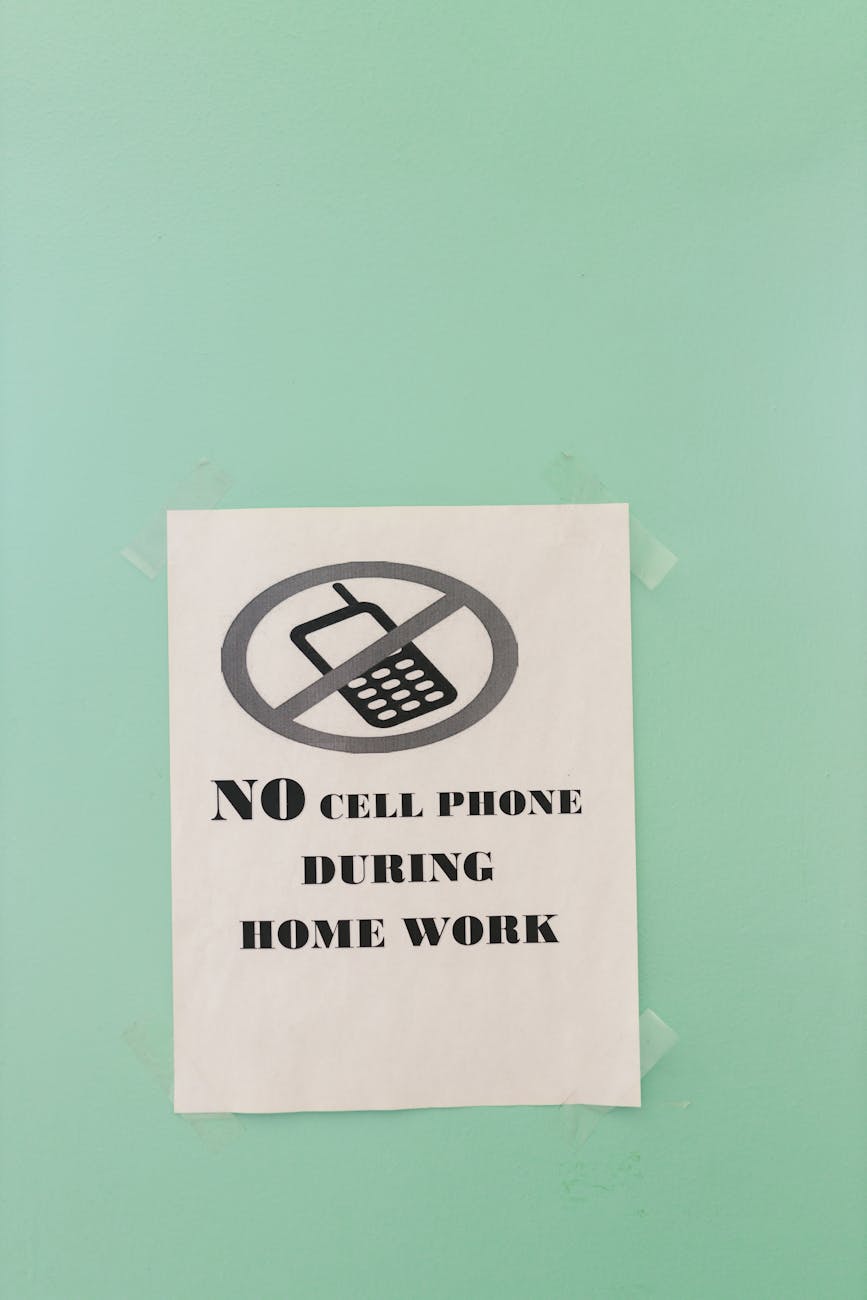
May is Asian American and Pacific Islander (AAPI) Heritage Month, and while I’m always up for shining a light on underrepresented voices, I have to admit: this particular grouping feels like it was assembled by someone who’s never looked at a map—or a history book. The AAPI umbrella includes a wildly diverse set of cultures, languages, and identities, from East Asia to South Asia to the islands of the Pacific, and even parts of the Middle East. That’s not a category; that’s half the globe.
Lumping all of that into one acronym? It’s reductive at best, erasure at worst. As Harmeet Kaur smartly noted in a piece for CNN, the label sticks mostly because there’s no better one. It’s a placeholder—an imperfect one—but still an opportunity to spotlight incredible writing that deserves a wider audience.
So, gripe acknowledged. Now, let’s get to the good stuff.
Here are a few books by Asian American and Pacific Islander authors that I recommend not just for May, but for any time you’re looking for something smart, layered, and unforgettable.
Audition by Katie Kitamura
Genre: Literary Fiction
Kitamura excels at writing characters who drift just outside the emotional current, and Audition is no exception. The story revolves around an actress and a younger man meeting for lunch in Manhattan, but the real tension lies in the question: who are we performing for, and when do we drop the act? Whether with family, friends, lovers, or strangers, we’re always auditioning. This one’s sharp, elegant, and quietly unsettling in the best way.
- Amazon Kindle Edition
- Kitamura, Katie (Author)
- English (Publication Language)
- 205 Pages – 04/08/2025 (Publication Date) – Riverhead Books (Publisher)
Hammajang Luck by Makana Yamamoto
Genre: Sci-Fi/Heist/Cyberpunk
This book is what happens when you throw Blade Runner, Ocean’s 8, and a stack of bail bonds into a blender and hit “Hawaiian pidgin.” Edie’s just out of prison—thanks to early parole and one hell of a backstory—and now she’s got one last job that might be her ticket to real freedom (or real chaos). Fast-paced, funny, and ferocious, this is genre fiction with heart and a whole lot of grit.
- Amazon Kindle Edition
- Yamamoto, Makana (Author)
- English (Publication Language)
- 356 Pages – 01/14/2025 (Publication Date) – Harper Voyager (Publisher)
Searches: Selfhood in the Digital Age by Vauhini Vara
Genre: Nonfiction/Technology & Identity
You might know Vara from The Immortal King Rao, but here she goes full throttle into personal essay and cultural criticism. Vara uses her viral AI-assisted piece about her sister’s death as a jumping-off point to explore how the internet—and tools like ChatGPT—reshape not just how we communicate, but how we construct identity. If you’re interested in where the digital and the deeply personal collide, this is a must-read.
- Hardcover Book
- Vara, Vauhini (Author)
- English (Publication Language)
- 352 Pages – 04/08/2025 (Publication Date) – Pantheon (Publisher)
The Manor of Dreams by Christina Li
Genre: Gothic Fiction/Family Drama
Let’s talk drama. When trailblazing Chinese American actress Vivian Yin dies, her daughters expect to inherit her estate—but a surprise will throws everything into chaos. Think: family feud, mystery, and a possibly haunted mansion with secrets thick as fog. This is a juicy, slow-burn gothic novel with plenty of generational tension and ghostly unease.
- Amazon Kindle Edition
- Li, Christina (Author)
- English (Publication Language)
- 352 Pages – 05/06/2025 (Publication Date) – Avid Reader Press / Simon & Schuster (Publisher)
- ‘Love Our People Like You Love Our Food’ is the perfect gift for anyone that supports the Asian community in America. Stop Hate Against Asians – Stand up for what you believe in! Equality for all!
- Love Our People Like You Love Our Food – Asian Pride – Proud AAPI – Equality Human Rights Gift. Great proud asian american women shirt. Perfect shirt for your Asian mom, dad, daughter, son, brother, sister, aunt or uncle or any family member or friend!
- 16” x 16” bag with two 14” long and 1” wide black cotton webbing strap handles.
- Made of a lightweight, spun polyester canvas-like fabric.
- All seams and stress points are double-stitched for durability, and the reinforced bottom flattens to fit more items and hold larger objects.
- Cool and beautiful red classic illustration of an Asian dragon flying above the heavens. Perfect gift for those who like Chinese warrior, Japanese, Korean and other Asia arts. Honor the draco shows power in this fabulous martial arts kung fu, karate.
- Great Asian art design that has a classic, classy, elegant look. This AAPI adds a great fantasy mythology element and support for good for those who are a fan or lover of dragons. Good gift for the Asian life. Stylish mixed martial arts look.
- 16” x 16” bag with two 14” long and 1” wide black cotton webbing strap handles.
- Made of a lightweight, spun polyester canvas-like fabric.
- All seams and stress points are double-stitched for durability, and the reinforced bottom flattens to fit more items and hold larger objects.
- Funny, stylish, fashionable ASIAN DON’T RAISIN whimsical 3D type design in sunshine yellow. Show off your Asian culture pride! Artsy style vibes that rep. cultures such as Chinese, Indian, Filipino, Vietnamese, Korean, Japanese, etc! Humorous aesthetic…
- (cont.) present for student, girlfriend, boyfriend, wife, husband, mom, dad, brother, sister, son, daughter, boys, girls, kids. Cute & trendy. Flag this gift idea for Christmas, college, university. Stop Asian hate, Stop AAPI hate and have a laugh instead!
- 16” x 16” bag with two 14” long and 1” wide black cotton webbing strap handles.
- Made of a lightweight, spun polyester canvas-like fabric.
- All seams and stress points are double-stitched for durability, and the reinforced bottom flattens to fit more items and hold larger objects.
- Perfect Size: Each sticker measures 2 inches—ideal for scrapbooks, planners, cards, envelopes, water bottles, laptops, phones, computers and more
- Value Pack: Includes 18 round awareness stickers across 2 sheets for multiple projects.
- Vibrant Designs: High-resolution printing with bold colors and clean details for a polished, professional look.
- Easy to Use: Peel-and-stick design adheres smoothly to paper, cardboard, plastic, glass, metal and just about any smooth surface
- Meaningful Crafting: Great for awareness events, fundraising, journaling, handmade gifts, and advocacy displays.
- Funny, stylish, fashionable ASIAN DON’T RAISIN whimsical 3D type design in sunshine yellow. Show off your Asian culture pride! Artsy style vibes that rep. cultures such as Chinese, Indian, Filipino, Vietnamese, Korean, Japanese, etc! Humorous aesthetic…
- (cont.) present for student, girlfriend, boyfriend, wife, husband, mom, dad, brother, sister, son, daughter, boys, girls, kids. Cute & trendy. Flag this gift idea for Christmas, college, university. Stop Asian hate, Stop AAPI hate and have a laugh instead!
- 16” x 16” bag with two 14” long and 1” wide black cotton webbing strap handles.
- Made of a lightweight, spun polyester canvas-like fabric.
- All seams and stress points are double-stitched for durability, and the reinforced bottom flattens to fit more items and hold larger objects.
- Funny, stylish, fashionable ASIAN DON’T RAISIN whimsical 3D type design in sunshine yellow. Show off your Asian culture pride! Artsy style vibes that rep. cultures such as Chinese, Indian, Filipino, Vietnamese, Korean, Japanese, etc! Humorous aesthetic…
- (cont.) present for student, girlfriend, boyfriend, wife, husband, mom, dad, brother, sister, son, daughter, boys, girls, kids. Cute & trendy. Flag this gift idea for Christmas, college, university. Stop Asian hate, Stop AAPI hate and have a laugh instead!
- 16” x 16” bag with two 14” long and 1” wide black cotton webbing strap handles.
- Made of a lightweight, spun polyester canvas-like fabric.
- All seams and stress points are double-stitched for durability, and the reinforced bottom flattens to fit more items and hold larger objects.
- Funny, stylish, fashionable ASIAN DON’T RAISIN whimsical 3D type design in sunshine yellow. Show off your Asian culture pride! Artsy style vibes that rep. cultures such as Chinese, Indian, Filipino, Vietnamese, Korean, Japanese, etc! Humorous aesthetic…
- (cont.) present for student, girlfriend, boyfriend, wife, husband, mom, dad, brother, sister, son, daughter, boys, girls, kids. Cute & trendy. Flag this gift idea for Christmas, college, university. Stop Asian hate, Stop AAPI hate and have a laugh instead!
- 16” x 16” bag with two 14” long and 1” wide black cotton webbing strap handles.
- Made of a lightweight, spun polyester canvas-like fabric.
- All seams and stress points are double-stitched for durability, and the reinforced bottom flattens to fit more items and hold larger objects.
- Funny, stylish, fashionable ASIAN DON’T RAISIN whimsical 3D type design in sunshine yellow. Show off your Asian culture pride! Artsy style vibes that rep. cultures such as Chinese, Indian, Filipino, Vietnamese, Korean, Japanese, etc! Humorous aesthetic…
- (cont.) present for student, girlfriend, boyfriend, wife, husband, mom, dad, brother, sister, son, daughter, boys, girls, kids. Cute & trendy. Flag this gift idea for Christmas, college, university. Stop Asian hate, Stop AAPI hate and have a laugh instead!
- 16” x 16” bag with two 14” long and 1” wide black cotton webbing strap handles.
- Made of a lightweight, spun polyester canvas-like fabric.
- All seams and stress points are double-stitched for durability, and the reinforced bottom flattens to fit more items and hold larger objects.
- Funny, stylish, fashionable ASIAN DON’T RAISIN whimsical 3D type design in sunshine yellow. Show off your Asian culture pride! Artsy style vibes that rep. cultures such as Chinese, Indian, Filipino, Vietnamese, Korean, Japanese, etc! Humorous aesthetic…
- (cont.) present for student, girlfriend, boyfriend, wife, husband, mom, dad, brother, sister, son, daughter, boys, girls, kids. Cute & trendy. Flag this gift idea for Christmas, college, university. Stop Asian hate, Stop AAPI hate and have a laugh instead!
- 16” x 16” bag with two 14” long and 1” wide black cotton webbing strap handles.
- Made of a lightweight, spun polyester canvas-like fabric.
- All seams and stress points are double-stitched for durability, and the reinforced bottom flattens to fit more items and hold larger objects.
- Funny, stylish, fashionable ASIAN DON’T RAISIN whimsical 3D type design in sunshine yellow. Show off your Asian culture pride! Artsy style vibes that rep. cultures such as Chinese, Indian, Filipino, Vietnamese, Korean, Japanese, etc! Humorous aesthetic…
- (cont.) present for student, girlfriend, boyfriend, wife, husband, mom, dad, brother, sister, son, daughter, boys, girls, kids. Cute & trendy. Flag this gift idea for Christmas, college, university. Stop Asian hate, Stop AAPI hate and have a laugh instead!
- 16” x 16” bag with two 14” long and 1” wide black cotton webbing strap handles.
- Made of a lightweight, spun polyester canvas-like fabric.
- All seams and stress points are double-stitched for durability, and the reinforced bottom flattens to fit more items and hold larger objects.
Final Thoughts
There’s no single story that can encapsulate the entire AAPI experience—and that’s the point. These books offer just a glimpse into a kaleidoscope of cultures, histories, and identities that deserve far more than a single month of attention. So read widely, read curiously, and don’t wait for someone to tell you it’s time to celebrate—just start reading.
The Eclectic Educator is a free resource for everyone passionate about education and creativity. If you enjoy the content and want to support the newsletter, consider becoming a paid subscriber. Your support helps keep the insights and inspiration coming!




















